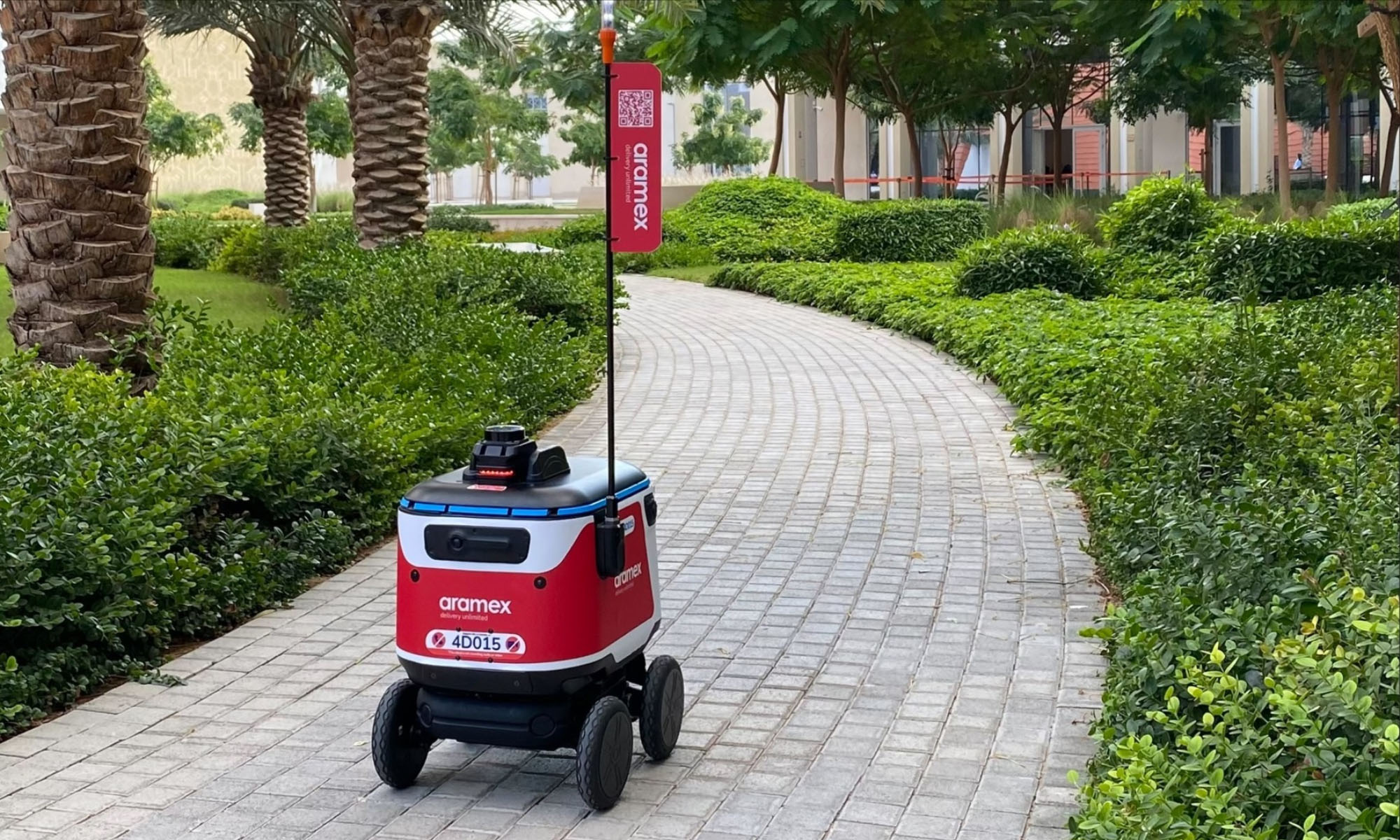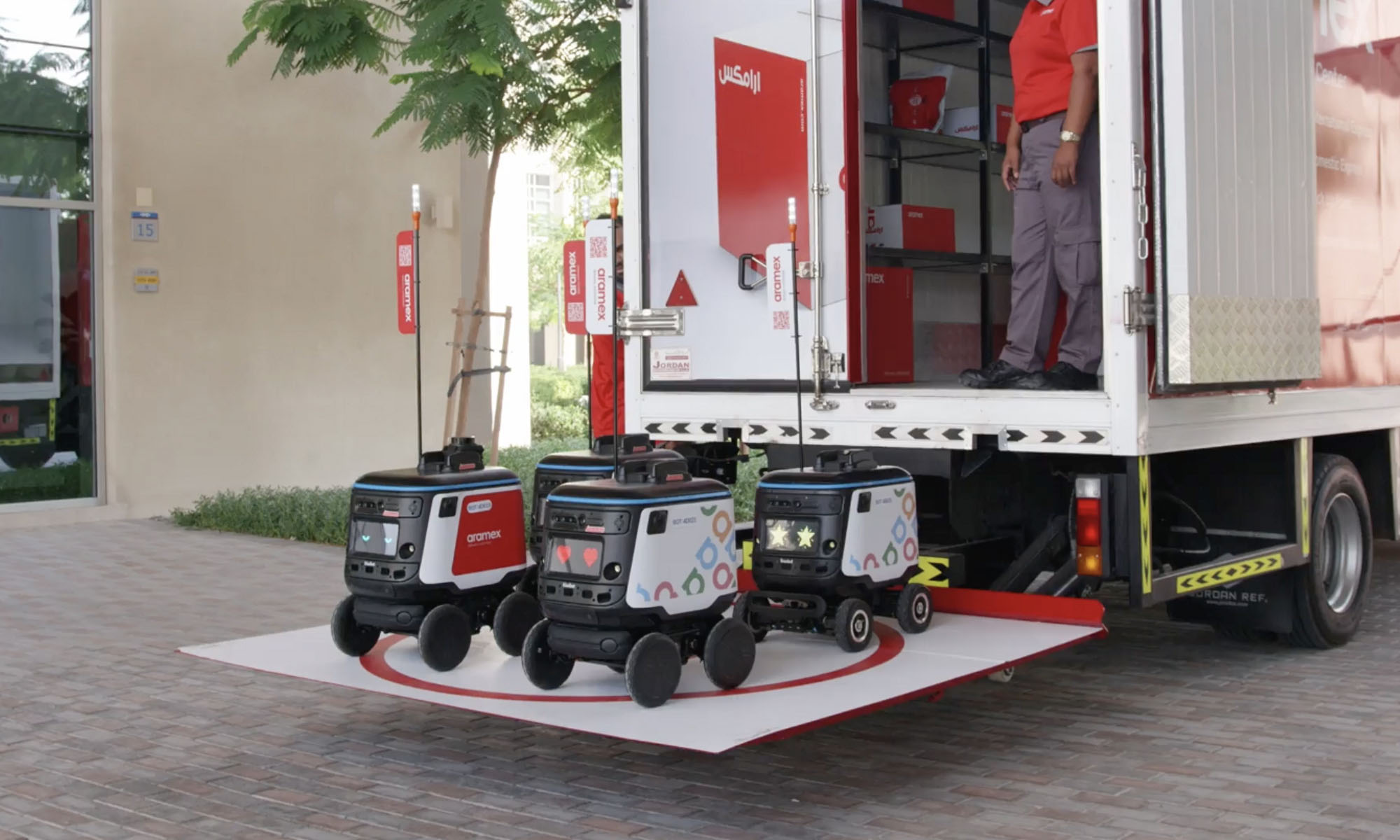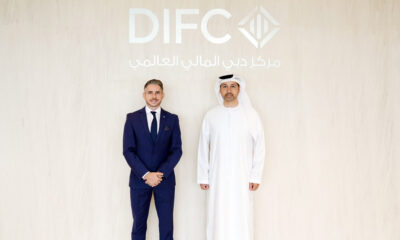News
Aramex Completes Testing Dubai Drone & Bot Delivery Service
The program is part of the company’s future logistics service, which aims to enhance the efficiency of last-mile deliveries.

Aramex, the Middle East’s largest courier company, has announced the successful completion of tests into a robot and drone delivery service in Dubai. The 16,000-employee company is currently researching emerging delivery technologies in a bid to boost sustainability and reduce its overall carbon footprint.
The initiative is part of the logistics company’s “future delivery program,” which aims to improve last-mile shipping by employing smart solutions for “quicker, sustainable and cost-effective deliveries”.
Initial tests took place at Rochester Institute of Technology in New York in partnership with Barq EV, a commercial drone delivery company based in the Emirates, and Kiwibot, a Colombia-based business specializing in delivery robotics.
“[The project] enables Aramex to further contribute to UAE’s sustainability ambitions as we embark on our mission to transition our fleet to emission-free vehicles and achieve our climate pledge to reach carbon neutrality by 2030,” says Alaa Saoudi, Aramex Chief Operating Officer.
Also Read: A First Glimpse Of Dubai’s Air Taxis Flying Past Local Landmarks
Aramex has already revealed plans to scale delivery services further to reach more customers across the MENA region, though there’s no firm timeline at the moment.

The drones and delivery robots used in Dubai will be equipped with multidirectional sensors. At the same time, fleet management software will help to synchronize and plan order placements, dispatch management, flight and road routing, and more.
According to data from research company Markets and Markets, the drone delivery market is estimated to be worth $228 million — a figure that will climb to $5.6 billion by 2030. e-Commerce giant Amazon has already started delivering some California and Texas packages by drone, and Walmart, the world’s biggest retailer, already offers autonomous delivery in some areas.
News
Rabbit Expands Hyperlocal Delivery Service In Saudi Arabia
The e-commerce startup is aiming to tap into the Kingdom’s underdeveloped e-grocery sector with a tech-first, locally rooted strategy.

Rabbit, an Egyptian-born hyperlocal e-commerce startup, is expanding into the Saudi Arabian market, setting its sights on delivering 20 million items across major cities by 2026.
The company, founded in 2021, is already operational in the Kingdom, with its regional headquarters now open in Riyadh and an established network of strategically located fulfillment centers — commonly known as “dark stores” — across the capital.
The timing is strategic: Saudi Arabia’s online grocery transactions currently sit at 1.3%, notably behind the UAE (5.3%) and the United States (4.8%). With the Kingdom’s food and grocery market estimated at $60 billion, even a modest increase in online adoption could create a multi-billion-dollar opportunity.
Rabbit also sees a clear alignment between its business goals and Saudi Arabia’s Vision 2030, which aims to boost retail sector innovation, support small and medium-sized enterprises, attract foreign investment, and develop a robust digital economy.
The company’s e-commerce model is based on speed and efficiency. Delivery of anything from groceries and snacks to cosmetics and household staples is promised in 20 minutes or less, facilitated by a tightly optimized logistics system — a crucial component in a sector where profit margins and delivery expectations are razor-thin.
Despite the challenges, Rabbit has already found its stride in Egypt. In just over three years, the app has been used by 1.4 million customers to deliver more than 40 million items. Revenue has surged, growing more than eightfold in the past two years alone.
Also Read: Top E-Commerce Websites In The Middle East In 2025
CEO and Co-Founder Ahmad Yousry commented: “We are delighted to announce Rabbit’s expansion into the Kingdom. We pride ourselves on being a hyperlocal company, bringing our bleeding-edge tech and experience to transform the grocery shopping experience for Saudi households, and delivering the best products – especially local favorites, in just 20 minutes”.
The company’s growth strategy avoids the pitfalls of over-reliance on aggressive discounting. Instead, Rabbit leans on operational efficiency, customer retention, and smart scaling. The approach is paying off, having already attracted major investment from the likes of Lorax Capital Partners, Global Ventures, Raed Ventures, and Beltone Venture Capital, alongside earlier investors such as Global Founders Capital, Goodwater Capital, and Hub71.


























